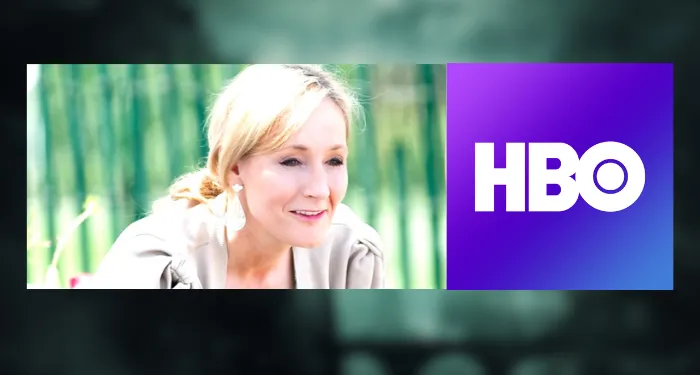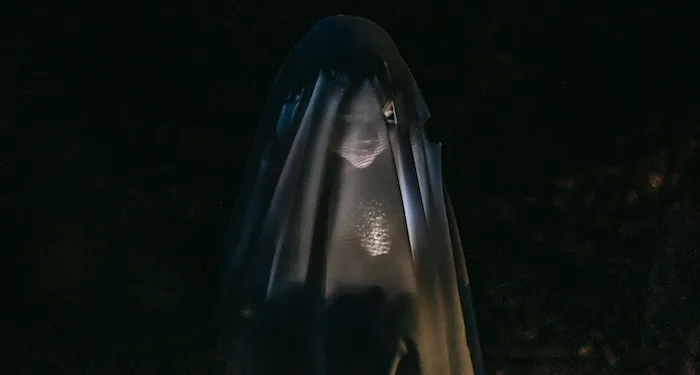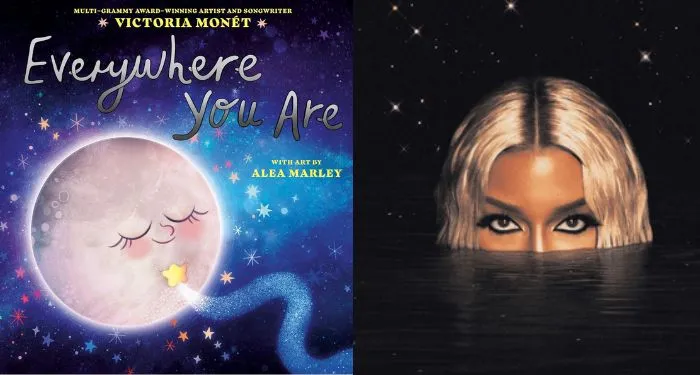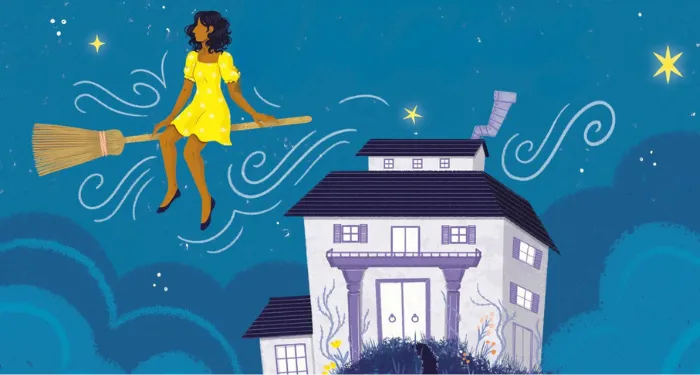The French filmmaker Catherine Breillat was in her mid-twenties when she met Roberto Rossellini. She had already published four novels and played a small role in Bernardo Bertolucci’s Last Tango in Paris (1972); now she was about to direct her first film, A Real Young Girl (1976). In a 2022 interview with the critic Murielle Joudet, she recalled having a tense conversation with the Italian filmmaker on the day before shooting began. When she boasted about her skill as a director, Rossellini challenged her. “What else can you bring to the depiction of young girls that men haven’t already captured?” he asked. “The look of shame,” she answered. “Because it’s you who gave us shame, and we are the ones who carry it.”
Shame is ubiquitous in Breillat’s work; her women often seem to actively court it. Alice (Charlotte Alexandra), the teenage protagonist of A Real Young Girl, staves off boredom with self-degrading fantasies: she imagines the local dreamboat tying her up spread-eagle with chicken wire and placing the severed bits of an earthworm in her pubic hair. In Romance (1999), a schoolteacher named Marie (Caroline Ducey) joylessly pursues casual sex with other men after her boyfriend loses interest. In Anatomy of Hell (2004), a suicidal woman (Amira Casar) hires a gay man repulsed by the female form to experiment with her body. The young girl in Bluebeard (2009), a fairytale set in the sixteenth century, is captivated by a beastly man who is rumored, and eventually revealed, to be a murderer. Abuse of Weakness (2014) follows the violent relationship between a disabled woman, Maud (Isabelle Huppert), and a con man. “It was me, but it was not me,” she says, taking ownership of her attraction to this brute when her loved ones intervene.
Breillat’s heroines are burdened by the sexual innocence expected of them by French society, which treats them like passive victims and stigmatizes their less conventional desires. The girls, for their part, treat virginity like a curse. It tells them: seek pleasure at your own risk. Breillat’s interest is in how women metabolize this fear, guilt, and distress. For them to pursue sexual gratification nonetheless is to rebel against both the world and themselves.
This tension runs through Last Summer—Breillat’s sixteenth feature, her first since Abuse of Weakness. It opens on a steely attorney named Anne (Léa Drucker) as she interviews a teenage client, a victim of rape. “Did you drink alcohol that night?” “How much?” “How many guys have you dated this year?” “How many did you sleep with?” The girl shivers.
Anne, a shrewd fiftysomething blonde, isn’t one to moralize, and yet moralizing is the lay of the land—it will, she knows, be central to the defense’s case. The other side, she tells her client, “will try to portray you as a world-class slut.” She encourages the girl to “keep calm,” to reject the shame that others want her to feel. This maddening survival strategy governs not just Last Summer but Breillat’s filmmaking as a whole.
*
Breillat was born in 1948 and grew up in Niort, a commune in the west of France known for its medieval landmarks. Her treatment of lust and shame tracks closely with the events of her own life: early films such as A Real Young Girl and 36 Fillette (1988) are coming-of-age stories about impetuous young women with bodies that developed early—as Breillat has said that hers did—who channel their angst into writing, journaling, and clubbing. Later films like Romance and Perfect Love (1996) express the director’s anxieties about motherhood and her skepticism of marriage, which she seems to find irreconcilable with sexual passion. Abuse of Weakness fictionalizes her relationship with the con man Christophe Rocancourt, whom she met after suffering a cerebral hemorrhage at fifty-six, and who took advantage of her impairment to scam her out of hundreds of thousands of dollars. The title of Joudet’s recent book of interviews with Breillat translates to “I Believe in No One but Myself.”1
Breillat is often labelled a “provocateur.” But that word suggests pushing buttons for the sake of it, when her work is nothing if not measured and self-aware. Her films don’t glamorize masochism, but they take the appeal of submission seriously. They depict women pursuing uncertain desires, swinging wildly from feeling to feeling, not exactly sure what they think. Breillat challenges the viewer to apprehend these desires without rushing to judge them, which helps explain her preference for unflinching long takes. In 36 Fillette, we see the teenage Lili (Delphine Zentout) shrinking away from her lover Maurice (Étienne Chicot) before reasserting her interest. In Fat Girl (2001), when Anaïs (Anaïs Reboux) watches uncomfortably as her older sister, Elena (Roxane Mesquida), deliberates having sex with her new boyfriend, the camera stays fixed on the younger girl’s flickering eyes.
Breillat’s films often include explicit and in several cases unsimulated sex scenes. By the late Nineties, admiring critics and conservative opponents alike were calling her the “auteur of porn.” She embraced the title—her 2001 novel from which she adapted Anatomy of Hell is called Pornocracy—though her films reveal a more sophisticated grasp of pornography’s appeal. She seems to understand that, as Susan Sontag argued, “every truly obscene quest tends . . . toward the gratifications of death.” During sex with her husband, Anne recounts her teenage obsession with a thirty-three-year-old man, the odes she would write to his wrinkles in her journal. His “thin, parchment skin” made it seem like he was “already dead,” she says, tickled by her younger self’s warped perception of aging.
If Breillat lingers on the fluidity and ambivalence of female desire, she also deals frankly with the prevalence of male violence in bourgeois society. Perfect Love, like several of her films, toys with the conventions of the policier: it opens at the crime scene where Frédérique (Isabelle Renauld) was killed by her lover and jumps back in time to trace their erratic affair. Fat Girl unfolds for the most part as a ruminative teen drama but abruptly shifts gears in the last act when a serial killer rapes Anäis and slaughters her mother and sister. When the cops arrive, she insists, wild-eyed, that the rape was in fact consensual.
Breillat’s commitment to staging sexual encounters that strain the boundaries of consent has led her to engage in some dubious on-set practices, which recently came under scrutiny in the French press. In a new memoir whose title translates to Predation (Feminine Noun), Caroline Ducey accuses Breillat of facilitating her rape on the set of Romance.2 In one scene Ducey’s character, Marie, allows a stranger to perform oral sex on her in the stairwell of her apartment building, but the man then forcibly sodomizes her. When she signed on to the project at twenty-one, Ducey told Le Nouvel Obs, she was reassured that the sex scenes would be handled with care: “Neither in the original script nor in the contract that I would sign later was there any question of these scenes not being simulated.” When it was time to shoot the stairwell scene, she was surprised to learn that a nonactor named Reza, whom Breillat found in a swingers club, would be playing the rapist: “Catherine asks me to take off my tights and panties for the sake of ‘realism.’… I feel an intense burning: Reza is performing cunnilingus on me. I lose consciousness…. Then I’m revived when I hear the sound of the film.”
After her account broke, newspapers started gathering testimonies from the shoot. The makeup artist Claire Monatte corroborated Ducey’s story to Libération: “It was understood that she would not be informed.” Breillat, for her part, denied the charge. “Caroline was never betrayed or raped,” she told the paper. “Everything was written in the script.” Two crewmembers acknowledged that boundaries might have been overstepped but contended that Breillat did not directly instigate the unsimulated oral sex. The first assistant director, Michaël Weil, related that Breillat was frustrated: “We’re stopping. That idiot of an actor is incapable of doing the scene without hurting Caroline,” he remembers her saying. The actor François Berléand, meanwhile, told Le Nouvel Obs that Breillat asked him during another sex scene to penetrate Ducey with his fingers “for real.” He refused but ultimately, according to Ducey, performed a mock version of the act in a way that satisfied the director.3
Perhaps the most illuminating window into how Breillat understands her actions onset can be found in one of her other films, Sex is Comedy (2002). In it, a filmmaker tries to perfect a sex scene explicitly modeled after the one in which Anäis’s sister, Elena, loses her virginity in Fat Girl. When the actress, also played by Roxane Mesquida, refuses to work with her equally recalcitrant scene partner, Breillat’s fictional stand-in (Anne Parillaud) plays mediator, wooing and menacing the actors, who eventually emerge from their dressing rooms and submit to the process. When they ultimately succeed, the results are ecstatic: the actress looks exhausted yet satisfied. Sex is Comedy doesn’t romanticize the chaos of the filmmaking process, but it still clings to a fantasy at the heart of many movies-about-movies: that the breakdowns, compromises, and accidents that happen along the way are always worth it.
*
If you know anything about Last Summer, you’ll know it’s about Anne’s affair with her seventeen-year-old stepson, Théo (Samuel Kircher). Age-gap liaisons are not new for Breillat. In 36 Fillette a punkish fourteen-year-old girl pursues a middle-aged playboy; in Perfect Love the age difference between a thirty-seven-year-old mother of two and her younger beau sets off insecurities that culminate in murder. But Last Summer stands out for stressing the older figure’s capitulation to desire. Anne gives into the kind of reckless abandon that might be standard for youthful romances—but for her leads to a form of self-destruction.
The teenagers in A Real Young Girl, 36 Fillette, and Fat Girl are stuck in the boonies during summer vacation, bristling with disaffection, tormented about wanting to lose their virginities. Like the girls in those earlier films, Théo is at loose ends during a break in the school year, but unlike them, he’s blasé about his sexual conquests. A bundle of anti-authoritarian bravado, he has been arrested for assaulting his teacher—and his mother has had enough. She sends him away to stay with his father, Pierre (Olivier Rabourdin), a financial consultant in his sixties who lives in a sunny house in the Paris suburbs with his second wife, Anne, and their two adopted daughters. When Anne comes home from work, the teenager’s clothes and cigarette butts are scattered around the living room; he hops out of the shower and leans his slender, shirtless torso against the doorframe.
Théo talks back to Pierre; he trashes the house and blames burglars. (Anne discovers the truth when she finds the spare keys from her stolen handbag in his dirty laundry.) Accustomed to dealing with unruly adolescents at work, she cuts his petty rebellions down to size. “I’m not a kid,” he tells her, the camera locked on his face. “Prove it,” she says. The intensity of Théo’s gaze—his mouth slightly open—has until this point communicated a fiery insolence. Now, as he stares at his stepmother, we sense a glimmer of fascination.
At a lake with the girls, Anne and Théo dunk each other’s heads under the water; over white wine and cigarettes, he caresses her forearm, indicating the spots where he could give her a tattoo. One evening, Anne flees a gathering with Pierre’s friends and, mounting Théo’s electric scooter, goes with him to a nearby pub. Finally, while Pierre is away on a business trip, she approaches his room to say goodnight, then finds herself sitting beside him on his bed, watching anime on his phone. The camera is nestled between their heads and looks at the phone screen when—suddenly and naturally—they kiss. It stays on Théo’s face as they have sex for the first time. The second time, days later, it remains on Anne’s.
Last Summer is Breillat’s only adaptation of another film: the 2019 Danish drama Queen of Hearts, a gloomy, starkly performed thriller with conventionally explicit sex scenes showing full-body nudity. (She may have taken this route in part because, as she has said in several interviews, she has had increasing difficulty financing original projects. Several of her scripts, including a reworking of Beauty and the Beast, were abandoned for lack of funding, and in France her controversial reputation has somewhat estranged her from the industry.) In Last Summer, the long, uninterrupted sex scenes linger intrusively on Anne’s and Théo’s expressions, reveling in the temporary extinction of consciousness. Théo’s arrogance slips away; he assumes a posture at once sheepish and enthusiastic, like a gluttonous child. The animal look on Anne’s face, meanwhile, tells us she’s somewhere else, if only for a moment.
*
For all the attention Breillat gives to her characters’ fantasies, her films always return to reality. In Last Summer the illicit thrills of the first half slowly turn to concrete perils, like Bluebeard’s wife discovering his chamber of corpses. In Fat Girl and Bluebeard, sisters delineate moral boundaries and prompt each other toward self-reflection. Here it’s Anne’s sister, Mina (Clotilde Courau), a single mom who works at a beauty salon, who learns about the affair first: one afternoon she finds Théo fondling his stepmother in the back shed. She storms off in disgust.
We don’t see Mina again until much later, but her reaction breaks the affair’s spell. “Some things should never have happened,” Anne says, holding back tears as Théo tries to coax dirty confessions from her with his tape recorder. For him it’s just a game, and here he seems to have more in common with his little sisters than with his middle-aged lover, who responds to his juvenile questions with a complexity that startles him. Shame eats away at her. Soon she breaks up with Théo and urges him to pretend it never happened. Then Pierre decides to take his son on a trip to the countryside. By the time they return, all has been revealed.
Will Anne come undone? In another, more conventional film, she might lose everything. When Pierre accuses her of sleeping with his son, we see that fate projected in her eyes. Whatever is said, keep calm. Anne lifts herself out of her seat slowly, carefully, as if a sudden movement might break her concentration; the camera’s steady pan upward echoes her movements. For most of the film, Drucker has played Anne with a graceful, relaxed naturalism, punctuated only by her shifting, anxious gaze. Now she pivots into sharp melodrama. “That’s vile. Insane. You’re not telling me you bought it?” She dismisses Theo’s allegations as the fabrications of a perturbed child. The rest of the scene plays out like a one-woman show, a theater of denial so brilliant that Pierre collapses into a puddle of remorse. This beautiful lie is the film’s greatest provocation.
Théo is devastated. Insisting that the affair was real, he engages an attorney and positions himself as a victim of sexual abuse. The closed-door proceedings unfold blandly and systematically. It doesn’t matter what Anne says. She slept with a minor, and for that she will always be guilty in the eyes of the law. In the end she pays for a private, scandal-free resolution.
This is thorny territory for Breillat. Even before Ducey’s allegations broke, she had achieved a certain notoriety for speaking out against what she considers the blindly punitive aspects of the #MeToo movement. In a 2018 interview she insisted that Harvey Weinstein is “not the worst man there is” and cast doubt on the sexual assault accusations that Asia Argento, her lead actress in The Last Mistress (2007), lodged against him. “If there’s anyone capable of defending herself, who’s not timid about sex, who does it a lot, and has lots and lots of desire for both men and women, it’s her. So I don’t believe Asia,” Breillat said—as if sexually assertive women could never be abused, or as if the potential ambivalence of women’s sexual activities exonerated abuse.
“Society demands victims [of rape] to feel like they have been destroyed for life,” Breillat told Joudet. “For the rapist it remains a crime.” But, she continued, “if I can get over it and say it meant nothing, it’s because I managed to escape the feminine condition I was stuffed into like a bag.” She was not denying that men violate and terrorize women with impunity. Indeed, her public statements and the gender relations depicted in her films suggest that she considers most men so bestial that simply entering into a heterosexual encounter involves a kind of masochism—precisely the desire she wants to reclaim from a society that deems it ugly and self-debasing. Even in Abuse of Weakness, which depicts her own victimization, she emphasized less that the con man was a villain than that Maud chose to let him in.
This understanding of sexuality rests on the assumption that puritanical guilt poses the greatest threat to women—that the priority should always be to carve out a space for their own taboo desires and refuse to respond to male violence with self-loathing. It is unidirectional, always pushing towards an ideal: proud insubordination; an insistence that female agency can overpower male violation. Marie, in Romance, seems to speak for many of Breillat’s heroines when, at the end of the film’s rape scene, she cries out: “I’m not ashamed, asshole!”
That line can be read as defiant.4 But rewatching the film after reading Ducey’s testimony, it feels closer to contrived—an exquisite abstraction designed to fulfill Breillat’s dream of a world in which women aren’t torn down by the sexual impulses of pitiful men. In reality, there are reasons to feel ambivalent about sex that have nothing to do with internalized misogyny. Some traumas can’t be overcome simply by asserting strength; willing oneself to say they “meant nothing” could also cause them to fester. Breillat’s films themselves indicate that such feelings might be throbbing under the icy surfaces of her characters’ self-control. In this sense she is one of our last true Hitchcockians, perversely fascinated by the fragility of personal autonomy even as she insists on the need to shore it up.
In the end Anne is back where she started: luminous, loved, surrounded by family. It’s Christmas, Pierre has given her a marvelous Cartier bracelet, and even Mina has found a way back into her confidence. “We’re sisters, after all,” Mina says as they share a warm, if vaguely conspiratorial, embrace. But happy endings in Breillat’s films are always compromised. In Romance, after Marie marries her lover, attaining the level of commitment from him she had always wanted, she murders him and attends his funeral clutching their newborn child; in The Sleeping Beauty (2011), when the princess makes love to Prince Charming, she’s thrown out of her fantasy realm and becomes an angsty, self-effacing woman walking alone on a city street. In bed with Pierre, Anne hears a knock on the front door. She slips out of bed and finds Théo, drunk and raving. They fuck outside, their bodies faintly illuminated by moonlight. Anne returns to bed like nothing happened, her secret safe for now. She nestles in Pierre’s arm. His wedding ring twinkles.






















 English (US) ·
English (US) ·